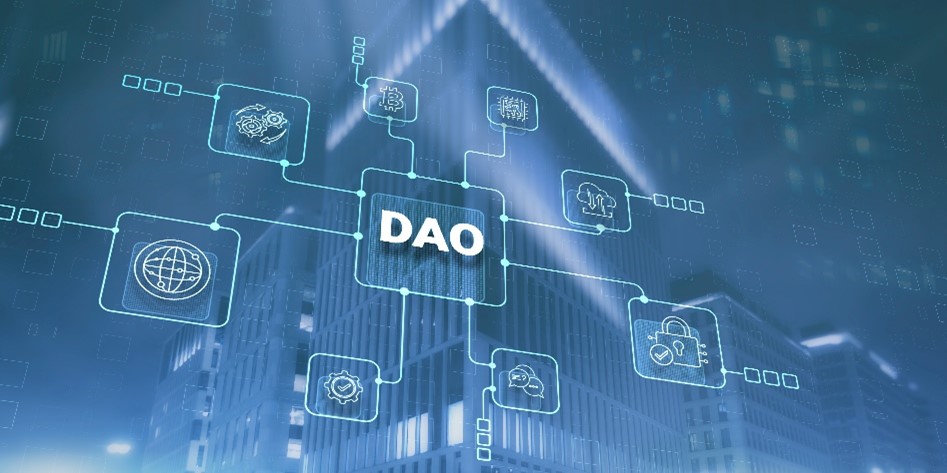
Order Granting Motion for Default Judgement Case No. 3:22-cv-05416-WHO – and why it sets a legal precedent
On 8th June 2023, the Northern District of California entered an Order and Default Judgement in the case between the U.S. Commodity Futures Trading Commission (CFTC) and the Ooki DAO (Decentralised Autonomous Organisation). The CFTC alleged that the Ooki DAO is and has been violating the Commodity Exchange Act (CEA). The CEA regulates the trading of commodity futures in the US, and it prescribes clear protections and requirements in order to engage in relevant derivative transactions. Senior District Judge William H. Orrick granted the motion for default judgement, based on several criteria and a previous order concluding that service on the defendant had been achieved.
For the purpose of the previous order (Dkt. No. 63), which had been decided in court in December 2022, the Court had found that the CFTC sufficiently showed that the Ooki DAO was an unincorporated association under Californian law, and federal law, allowing for service to have been achieved through actual and the best notice practicable under the circumstances.
There were three facts to be established:
- Unlawful Off-Exchange Leveraged and Margined Retail Commodity Transactions
- Activities That Can Only Lawfully Be Performed by a Registered Futures Commission Merchant
- Failure to Implement CIP, KYC, or Anti-Money Laundering Procedures.
The CFTC provided evidence that the Ooki DOA engaged in unlawful off-exchange leveraged and margined retail commodity transactions. They established that the transactions conducted via the Decentralised Autonomous Organisation (DAO) Protocol were retail commodity transactions as defined by 7 U.S.C. The Ooki DAO Protocol functionally served as a trading platform where holders of an Ethereum wallet could bet on the rise and fall of virtual currencies by contributing collateral currency. This was conducted through smart contracts which opened leveraged positions to exchange with other currencies by borrowing virtual currency from the Protocol’s liquidity pool. The Protocol user would then either earn profits or lose the collateral currency depending on the actual trend of other currencies. This evidence sufficiently showed that the Ooki DAO, acting through the Protocol, executed contracts for the purchase and sale of commodity futures through its control of the Protocol. This established the first element.
The second element is proved in part by the first element, but the CFTC went on to establish that the Ooki DAO ‘solicited’ these transactions through advertising on social media and the website through the statements of its founders – who did not appear in Court – and so the Ooki DAO constituted a futures commission merchant.
As the Ooki DAO was established as a futures commission merchant, there were certain provisions and regulations that they were required to follow. These included implementing a CIP facilitating KYC diligence. The CFTC successfully showed that the Ooki DAO violated these requirements, among others, and therefore was found liable in the order of the default judgement.
The judge went on to discuss the lack of excusable neglect for the defendants who did not appear in court, and the policy favouring a default judgement.
Implications of the decision for DAOs
The decision imposed a financial penalty of $643,542 on the Ooki DAO. Beyond the fine, Judge Orrick imposed permanent trading bans, and ordered the shutdown of the Ooki DAO’s website and removal of the content from the internet. Judge Orrick ruled that the DAO consisted of token holders who shared the aim of operating the protocol which provided capabilities for users to trade derivatives.[1] The decision of the Court in this case establishes an important precedent that DAOs can be held liable as ‘a person’, under the definitions of the CEA, because the Court considered it as an unincorporated association.[2] The implications of this decision for DAOs are that they can be held liable for breaching laws and regulations.
This is not the first state in the U.S. to have found DAOs to be legally responsible entities. In 2021, Bill 38 was signed into law in Wyoming. The Bill recognises DAOs as limited liability companies. The Bill was created to provide protections of limited liability for members of DAOs that are set up as Wyoming LLCs, as it protects DAOs from being treated as general partnerships in legal disputes. The criteria of this Bill for DAOs to be considered LLCs in the state of Wyoming include having to maintain presence in the state through a registered agent. Through Bill 38, Wyoming has defined the legal personality of a DAO.[3] The state of Delaware has also established a Legal DAO ‘LAO’. This creates a DAO with an LLC structure to provide clarity on points such as applicable law, tax, and limited liability of participants.
The decision from the Court in CFTC v the Ooki DAO shows that DAOs and decentralised organisations are not beyond the reach of the law.
[1] https://www.reuters.com/legal/government/crypto-plaintiffs-firms-pin-hopes-key-ruling-governments-ooki-case-2023-01-04/
[2] https://www.lexology.com/library/detail.aspx?g=a0658efa-74a7-4353-a93c-d2896f4f3d6a
[3] https://uk.practicallaw.thomsonreuters.com/w-032-5565?transitionType=Default&contextData=(sc.Default)&firstPage=true
